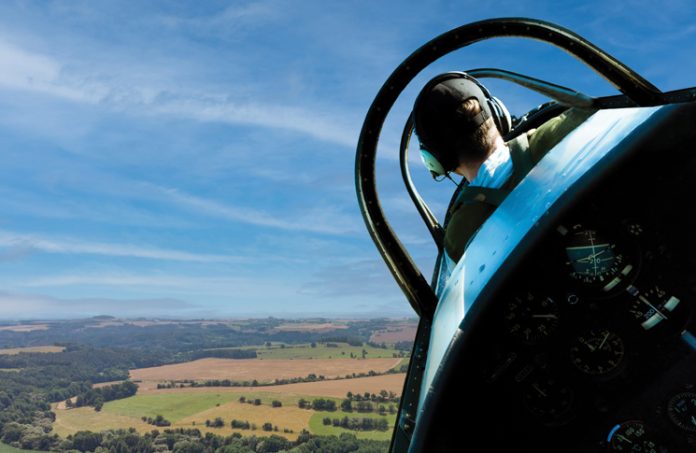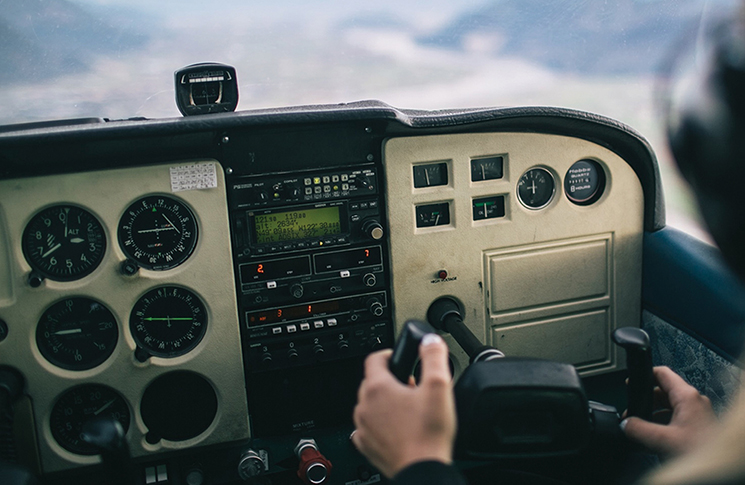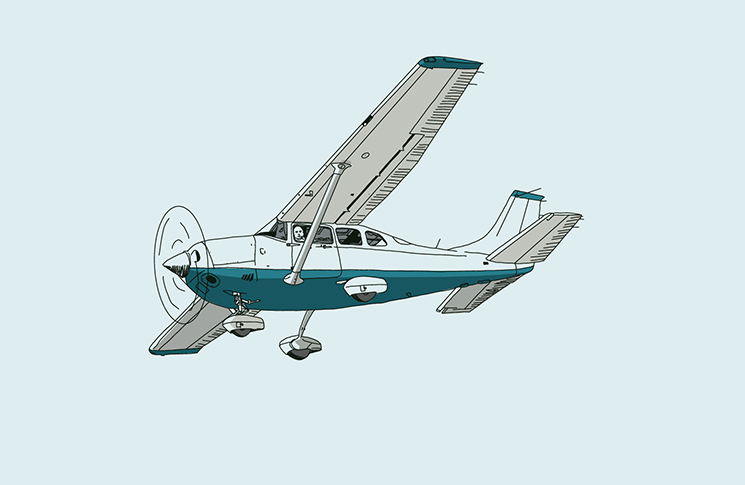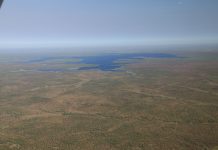Purely by accident, an instructor learns that taking your time can be the key to survival
By Douglas Robertson
Long ago and far away I was an instructor on light aircraft. In those days, I was required to teach spinning and for the student to do solo spins. So, it was pretty normal for me.
On the day in question, I took a student up for a session of spins, not his first, by the way. The aircraft was the aerobatic version of a popular trainer and that might be significant in what happened – different centre of gravity.
All went well and I said, ‘Okay, do one more, then we’ll head back’. He had been doing fine so I paid less attention than I should have.
After a couple of turns, I said, ‘recover’ but we spun on. ‘Recover,’ I repeated – and repeated again in a falsetto voice. ‘I am,’ he replied.
I took control, if you can call it that, and found that the rudder was fully over in the correct direction but the elevators, when I moved them, felt the same as if we were parked on the apron.
Well, I’d read about this sort of thing, so I shoved the throttle to the panel and followed it with the stick. And again and again – allegro!
I must have been doing things very quickly because I managed to grab the microphone and yell a squeaky mayday so our next of kin would know of our passing. It was the sort of mic that sat on a hook on the panel. The elders of our club said we didn’t need an intercom because they hadn’t had intercoms in the first aircraft, like the Maurice Farman.
After a couple of turns, I said, ‘recover’ but we spun on.
Out of pure habit, I leaned forward to replace the mic on the hook (go figure!). Missed, tried again and got it stowed. This meant I was holding the stick to the panel and the throttle ‘bricks to the wall’ long enough to have an effect.
I felt new life in the elevators, we recovered. I closed the throttle and pulled out. We were below the legally required height for recovery, as you might imagine. There was silence as we went home.
Lessons learnt: It was a neural pathway or perhaps a neural superhighway burnt into my mind. I had been going at it too fast. Years have passed and many a first officer has heard me say, ‘andante, andante’. (Piano teacher’s jargon for, ‘Hey, slow down!’)
Over the years, in Hercules, Viscounts, BAC 1-11s, Boeing 737, 757 and 767s, I’ve rarely seen a problem that had to be solved in the next half second. For example, I have seen a hand flash to the overhead panel as we broke clear of overcast and switch off 2 hydraulic pumps instead of the engine anti-ice.
The fastest part of the brain is not the smartest part. When something happens that gives you a fright, pause. If you feel stupid and out of it, don’t worry; that will pass in less time than you realise and you will deal with it. Oh, and read a lot.
Have you had a close call?
8 in 10 pilots say they learn best from other pilots and your narrow escape can be a valuable lesson.
We invite you to share your experience to help us improve aviation safety, whatever your role. You may be eligible for a free gift just for submitting your story.
Find out more and share your close call here.






I’m sure it’s clear to others what happened Douglas, but I seem to have missed it…was the act of replacing the microphone in the holder significant?
Yes, it was what caused me to keep the stick forward long enough, and the power at full.
He neglected to explain but I think the action of him leaning forward moved the centre of gravity of the A/C forward sufficiently to fix the perilous situation!
Yes. It took his mind off the fact he was holding the control column full forward and the throttle was still firewalled.
Spin recovery says to do those two actions while holding full opposite rudder until the aircraft stops rotations then level the wings and recover from the dive. What it doesn’t say is how long this might take (different from aircraft type to type and loading conditions) or that it won’t occur instantly when recovery is actioned.
In some aircraft, spins are prohibited because recovery isn’t even possible.
Great story.
I’m reminded of the old joke about the young Bull and the old Bull which I have told many times.
I think he means that had he not persisted in trying to relocate the mic, he may not have kept everything to the panel, and thus tried a different combination of controls which may not have unstuck the elevator?
A useful lesson learned, however it would have been even more useful if we knew the aircraft type.
Why do you want to know the aircraft type.? Irrelevant – it was about being too quick on making decisions. The jet captain did the same thing. Not the aircraft’s fault.